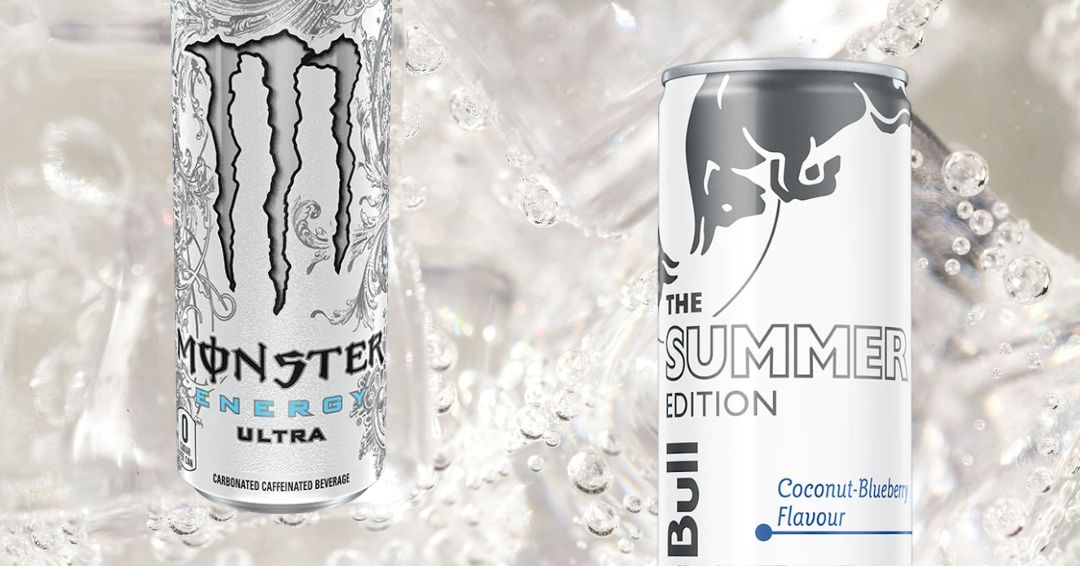The energy drink landscape, once dominated by the high-octane, sugary concoctions of Red Bull GmbH and Monster Beverage Corp., is undergoing a dramatic transformation.
As consumers increasingly prioritize health and wellness, these industry stalwarts are facing a significant challenge from a new wave of sugar-free competitors.
The shift marks a pivotal moment, forcing legacy brands to rethink their strategies and potentially cede ground in a market they once defined.
The rise of ‘better-for-you’ beverages
The pivot towards healthier options gained momentum during the pandemic, as noted by Sally Lyons Wyatt, Circana’s chief adviser on consumer goods and foodservice insights, who told Bloomberg that consumers began “prioritizing their wellbeing.”
This has paved the way for new brands marketing themselves as “better-for-you” alternatives, most notably Celsius Holdings Inc.
With their fruit-flavored, vitamin-enriched drinks, Celsius has successfully tapped into a new demographic that previously shied away from traditional energy drinks, attracting consumers through social media fitness influencers, and effectively disrupting the status quo.
As Jefferies analyst Kaumil Gajrawala explains in the same report by Bloomberg that these new entrants “appealed to an entirely new set of consumers that wouldn’t touch energy drinks otherwise.”
Red Bull and Monster: a legacy under pressure
Red Bull, the Austrian company that ignited the energy drink craze by associating it with extreme sports, and Monster, whose stock price soared an astonishing 70,000-fold between 1997 and 2012, are now navigating a landscape where their sugary flagship products are less appealing.
While both brands have introduced sugar-free options, these were initially targeted towards calorie-conscious men, rather than the broader health-focused consumer base, as Kenneth Shea, a beverage analyst at Bloomberg Intelligence, pointed out: “It was an extension of the existing brand.”
Red Bull’s origins trace back to a Thai energy drink that was tweaked, given fizz, and unleashed on the global market in 1984 by Dietrich Mateschitz, while Hansen Natural (now Monster) launched their own version in the US in 1997.
The success of the products attracted copycat brands, sparking health concerns that have added to the changing market dynamics.
Despite this, the energy drink market’s rapid expansion has continued to benefit both Monster and Red Bull with strong revenue growth in the US even as market share shifts.
The competitive arena heats up
Recognizing the market’s evolution, rival beverage giants are aggressively moving into the energy drink space.
Keurig Dr Pepper Inc., for example, is making a renewed push, investing in various zero-sugar brands like Nutrabolt’s C4 Energy, Bloom Nutrition, Black Rifle Coffee’s energy drinks, and acquiring Ghost for $1 billion.
Justin Whitmore, Keurig Dr Pepper’s chief strategy officer, told Bloomberg that these brands target diverse consumer segments.
C4 focuses on fitness enthusiasts, Bloom on women, and Ghost caters to the social scene, particularly at music events. Whitmore also underscores that the energy drink segment is particularly favored by millennials and Gen Z consumers and that “The need state is very clear.”
Even Celsius is adapting by introducing larger 16-ounce cans, retro flavors and on-the-go powder sticks.
Adapting to the shift
To protect their market position, Red Bull has expanded its “Editions” line, introducing both sugared and sugar-free versions simultaneously for the first time in October.
After the death of his father in 2022, Mark Mateschitz took control of the closely held Red Bull, and seems to be placing more emphasis on sugar-free drinks.
Meanwhile, Monster is also pivoting.
In 2019, it launched Reign, aimed at workout enthusiasts, moving away from its traditional association with extreme sports and gaming. Reign later sued and acquired Bang Energy, its fitness-focused rival.
In 2023, Monster further adapted by introducing Reign Storm, a sleeker, minimalist spinoff designed to appeal to health-conscious consumers.
But as Stifel analyst Mark Astrachan notes, Reign Storm has had “limited success so far” with its total market share being just about 3% compared to the 12% of Celsius based on data of market share by dollar sales from Circana cited by Celsius.
Red Bull’s Editions series is also lagging behind with a total of just 2% of the total market share, according to Circana data of market share by volume in the 52 weeks ended December 1.
The threat from these new entrants is now evident with Monster’s stock dropping 9.3% this year, the first annual decline since 2018.
The road ahead
Despite the challenges, Monster remains optimistic about the market for sugared drinks.
“Everybody’s focusing on zero sugar,” CEO Rodney Sacks told Bloomberg, adding, “But we do believe there is a market in the US, particularly Middle America, where consumers still want a full-sugar product.”
However, the broader trend indicates that demand for sugar-free energy drinks will continue to drive the industry’s growth as consumers look for value and drinks that offer all-in-one benefits with “energy plus,” according to Lyons Wyatt.
The future of the energy drink market will likely depend on the ability of brands to cater to evolving consumer preferences and strike a balance between satisfying the health-conscious and legacy consumer base.
The post Can Monster and Red Bull hold their ground as energy drink market goes sugar-free? appeared first on Invezz

